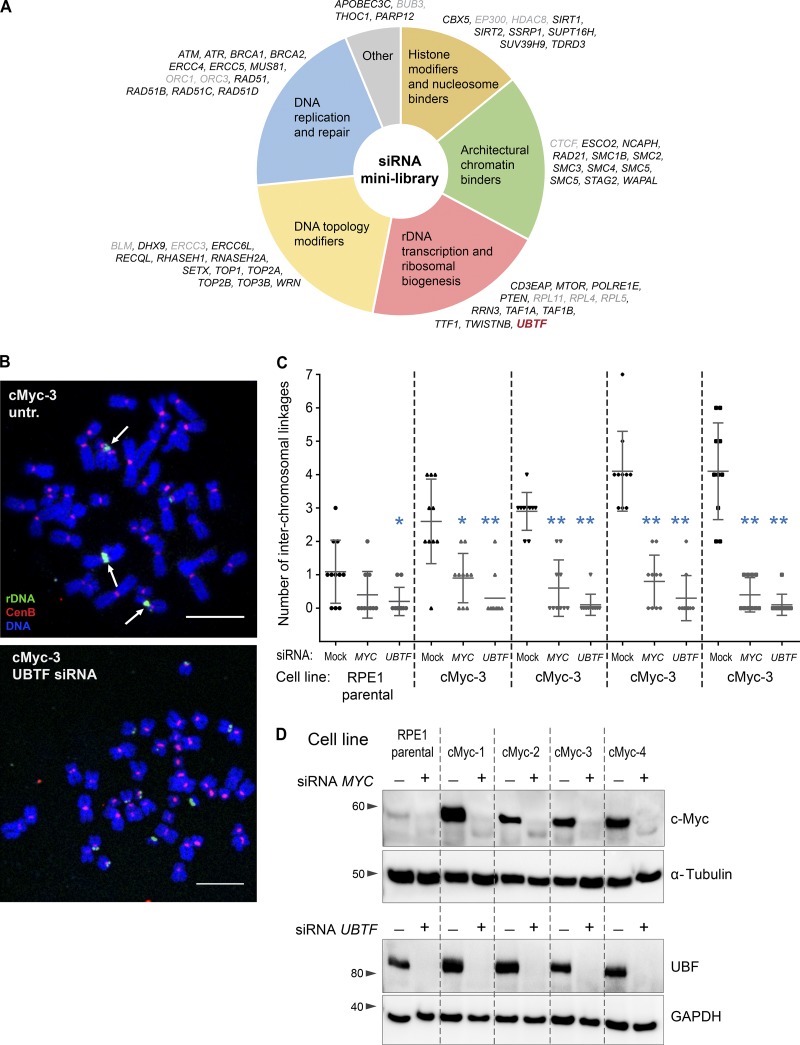Figure 4.
siRNA minilibrary screen identified UBTF as an essential gene for the formation of rDNA linkages. (A) Schematic representation of the siRNA minilibrary used to screen for genes that eliminate rDNA linkages in c-Myc–overexpressing cells. c-Myc–overexpressing RPE1 derivative cMyc-3 cells were transfected with siRNAs for 72 h, followed by mitotic spread preparation and FISH labeling for the rDNA. The number of interchromosomal linkages was scored manually. Genes whose knockdown prevented mitotic entry, precluding chromosomal spread preparation, are highlighted in gray. The sole hit, UBTF, is highlighted in red. (B) Representative chromosomal spreads from c-Myc–overexpressing cells and untransfected (untr.) control or transfected with UBTF siRNAs. Arrows point to interchromosomal linkages in the control spread. In the UBTF knockdown spread, rDNA linkages are absent. Bar, 10 µm. (C) Quantification of the number of interchromosomal rDNA linkages from parental RPE1 cells and c-Myc–overexpressing derivative cell lines cMyc 1–4 transfected with MYC or UBTF siRNAs. Knockdown of UBTF causes a stronger decrease in the frequency of rDNA linkages than the knockdown of MYC in all derivatives. Images of ≥10 chromosomal spreads from each sample were examined. The Mann–Whitney U test was used to compare siRNA-treated samples with control. *, P < 0.05; **, P < 0.001. (D) Western blot analysis of c-Myc and UBF protein levels in cells treated with indicated siRNAs for 72 h. Both MYC and UBTF siRNAs induced strong protein knockdowns.

